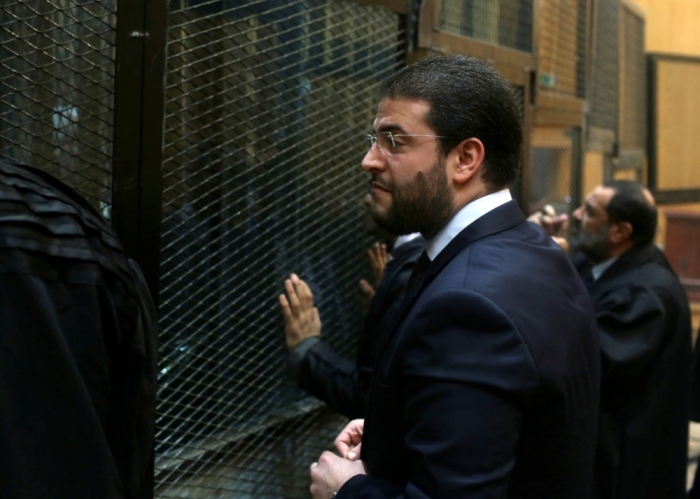Egypt Hands Down Mass Death Sentences to 183 Protesters; Human Rights Groups Slam Decision

Egypt has handed down death sentences to 183 people involved in the murder of 11 policemen and two civilians during the August 2013 mass protests. Human rights groups have pointed out, however, that the court has failed to hold a single police officer accountable for the deadly clashes.
"Today's death sentences are yet another example of the bias of the Egyptian criminal justice system," said Hassiba Hadj Sahraoui of Amnesty International. "These verdicts and sentences must be quashed and all of those convicted should be given a trial that meets international standards of fairness and excludes the death penalty."
"Issuing mass death sentences whenever the case involves the killing of police officers now appears to be near-routine policy, regardless of facts and with no attempt to establish individual responsibility," Sahraoui added.
CNN pointed out that 34 of the 183 defendants were tried in absentia, and all have the option to appeal against the sentence.
Clashes between police and protesters during the uprising that ousted former President Mohamed Morsi have sparked several trials, and back in March 2014 the Egyptian court sentenced 529 Muslim Brotherhood supporters to death for their role in the turmoil.
The verdict was slammed by several lawyers, such as Mohamed Zarie, who heads the Arab Penal Reform Organization rights center in Cairo. Zarie argued that the court is seeking revenge rather than justice.
Amnesty said that 415 of those sentences have been upheld. At the same time, no police officers have been charged with the deaths of close to 1,000 protesters in August 2013.
Human Rights Watch voiced similar concerns in a report on Tuesday. The group noted that beside the death sentences, Egypt has jailed more than 41,000 people. While close to 29,000 of those are reportedly Muslim Brotherhood supporters, others have been identified as government critics from various political groups.
"Egypt is at a post-revolution nadir, and right now there's no light at the end of the tunnel," said Sarah Leah Whitson, HRW Middle East and North Africa director. "The situation for thousands of Egyptians is getting worse by the day."
"Authorities have also zealously enforced a 2013 anti-protest law, leading to hundreds of convictions, including of high-profile activists and human rights defenders such as Yara Sallam, Ahmed Maher, and Alaa Abdel Fattah," the report added.
"The law allows the Interior Ministry near-total power to ban any gathering of more than 10 people that it has not authorized. Security forces have used the law to repeatedly and violently disperse unauthorized demonstrations, resulting in a number of deaths," claims in the report continued.
Egypt has faced a number of violent years, with protesters bringing down former President Hosny Mubarak in 2011, before the fall of Morsi and the Muslim Brotherhood in 2013.
Egypt's President Abdel Fattah el-Sisi has called for an end to such deadly clashes, and called on Muslim leaders to help in the fight against extremism.




























